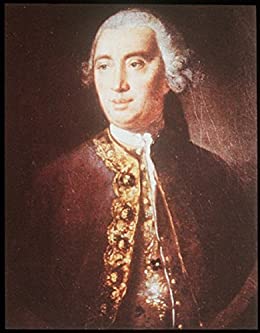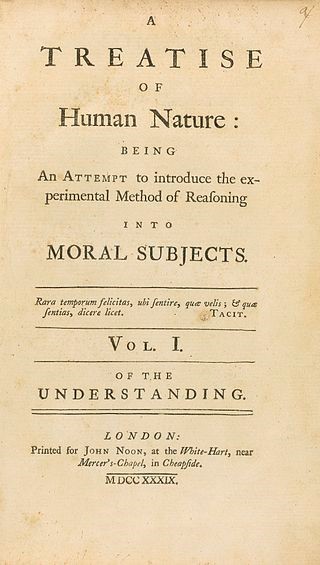
David Hume was a Scottish historian, philosopher, and economist. His thoughts were influential in building the foundation of the United States.
Below is an excerpt from a biography of David Hume included with our books.
| Title | Published |
|---|---|
| A Treatise of Human Nature | 1740 |
| The History of England | 1762 |
David Hume was born on April 26, 1711 in Edinburgh, Scotland, UK.
He was born in a tenement on the north side of the Lawnmarket in Edinburgh. Hume’s family was not rich and he had little spare money as a younger brother to live on. He was therefore forced to make a living somehow without a rich education as a bright boy.
In 1723, Hume attended the University of Edinburgh at the age of twelve. He initially considered a career in law, but changed his mind in his words of “an insurmountable aversion to everything but the pursuits of Philosophy and general Learning”.
Young Hume was arrogant and told a friend in 1735 that “there is nothing to be learnt from a Professor, which is not to be met with in Books”.
Hume made a philosophical discovery at the age of 18 that opened up to him “a new Scene of Thought”, which inspired him to spend a minimum of ten years reading and writing. After the ten learning years, he decided to have a more active life to better continue his learning.


David Hume left the University of Edinburgh around 1733. Hume chose the job as a stool in a merchant’s office in Bristol.
In 1734 he went to La Flèche in Anjou, France after a few months occupied with commerce in Bristol. David Hume had frequent discourse with the Jesuits of the College of La Flèche during his time in La Flèche.
David Hume started working on his most important work, A Treatise of Human Nature at the age of 24 and completed it in 1738 at the age of 28 after four years of efforts.
Although A Treatise of Human Nature by David Hume is one of the most important books in Western philosophy, the critics in UK described it as “abstract and unintelligible”.
David Hume published Essays Moral and Political in 1744 and he applied for the Chair of Pneumatics and Moral Philosophy at the University of Edinburgh. However, the position was given to William Cleghorn.
David Hume tutored the Marquis of Annandale from 1720 to 1792. Hume also started his great historical work The History of England during this period and took him fifteen years complete it.
From 1746, Hume worked for three years as secretary to Lieutenant-General James St Clair and wrote An Enquiry Concerning Human Understanding.
Hume failed to gain the chair of philosophy at the University of Glasgow in 1749 and went to live with his brother in the country.


Davie Hume returned to Edinburgh in 1751 and this enabled him to continue historical research for The History of England.
Hume’s work of Political Discourses written in 1749 was published in 1752. This was the only work that he considered successful on first publication.
Hume achieved the fame that he expected due to the publication of his six volumes of The History of England between 1754 and 1762. The volumes traced events from the Invasion of Julius Caesar to the Revolution of 1688 and was a bestseller in its day.
In 1769 Hume returned to James’ Court in Edinburgh and then lived from 1771 until his death in 1776.
Hume died at the southwest corner of St. Andrew’s Square in Edinburgh in 1776 that is 21 Saint David Street now.
Hume asked that his body be interred in a “simple Roman tomb”. It stands today on the southwestern slope of Calton Hill, in the Old Calton Cemetery.
From 1763 to 1765, Hume was invited to attend Lord Hertford in Paris, where he became secretary to the British embassy.
During Paris Hume met Jean-Jacques Rousseau.
In 1765, Hume served as British Chargé d’affaires. In 1767, Hume was appointed Under Secretary of State for the Northern Department.


